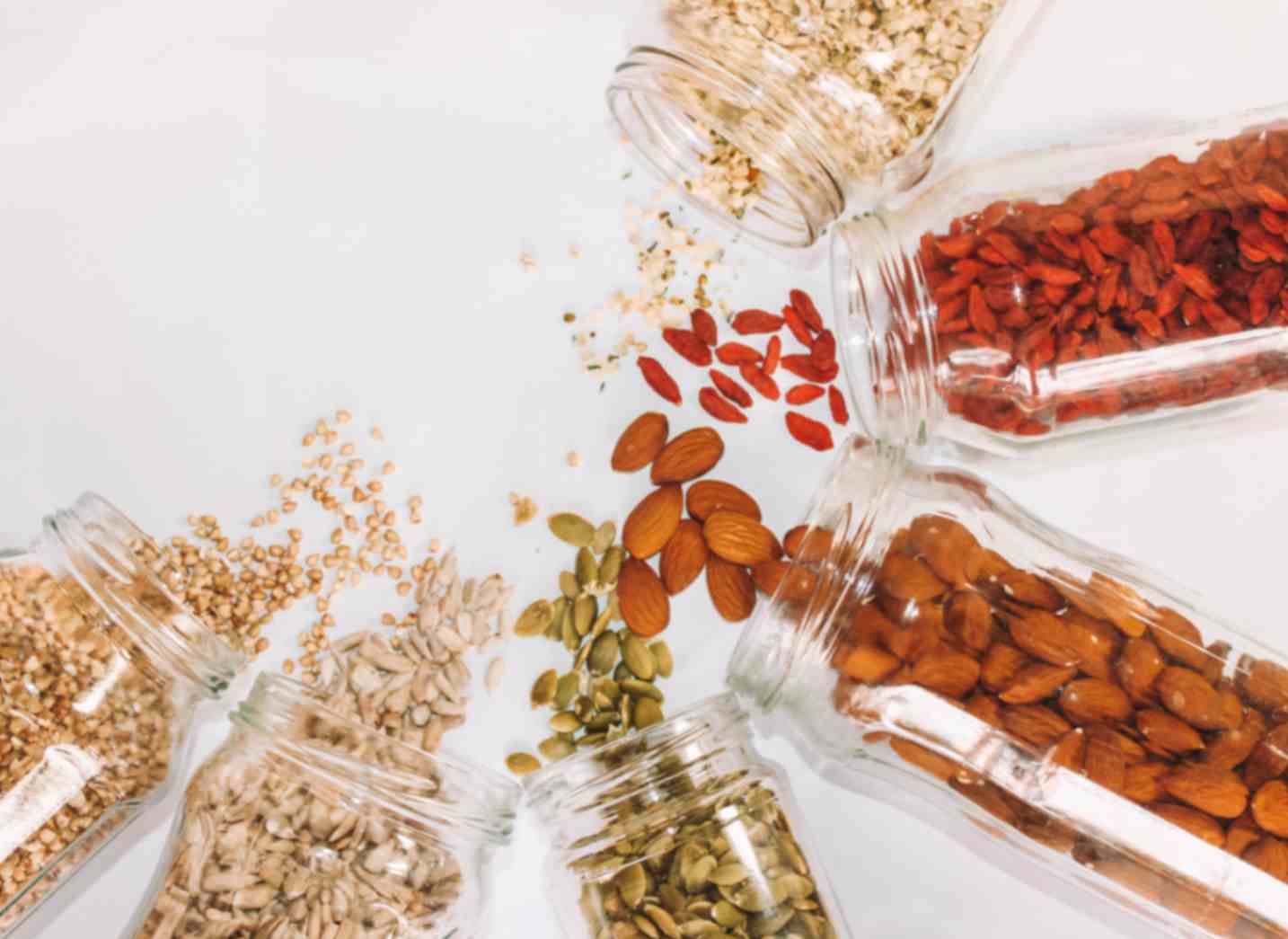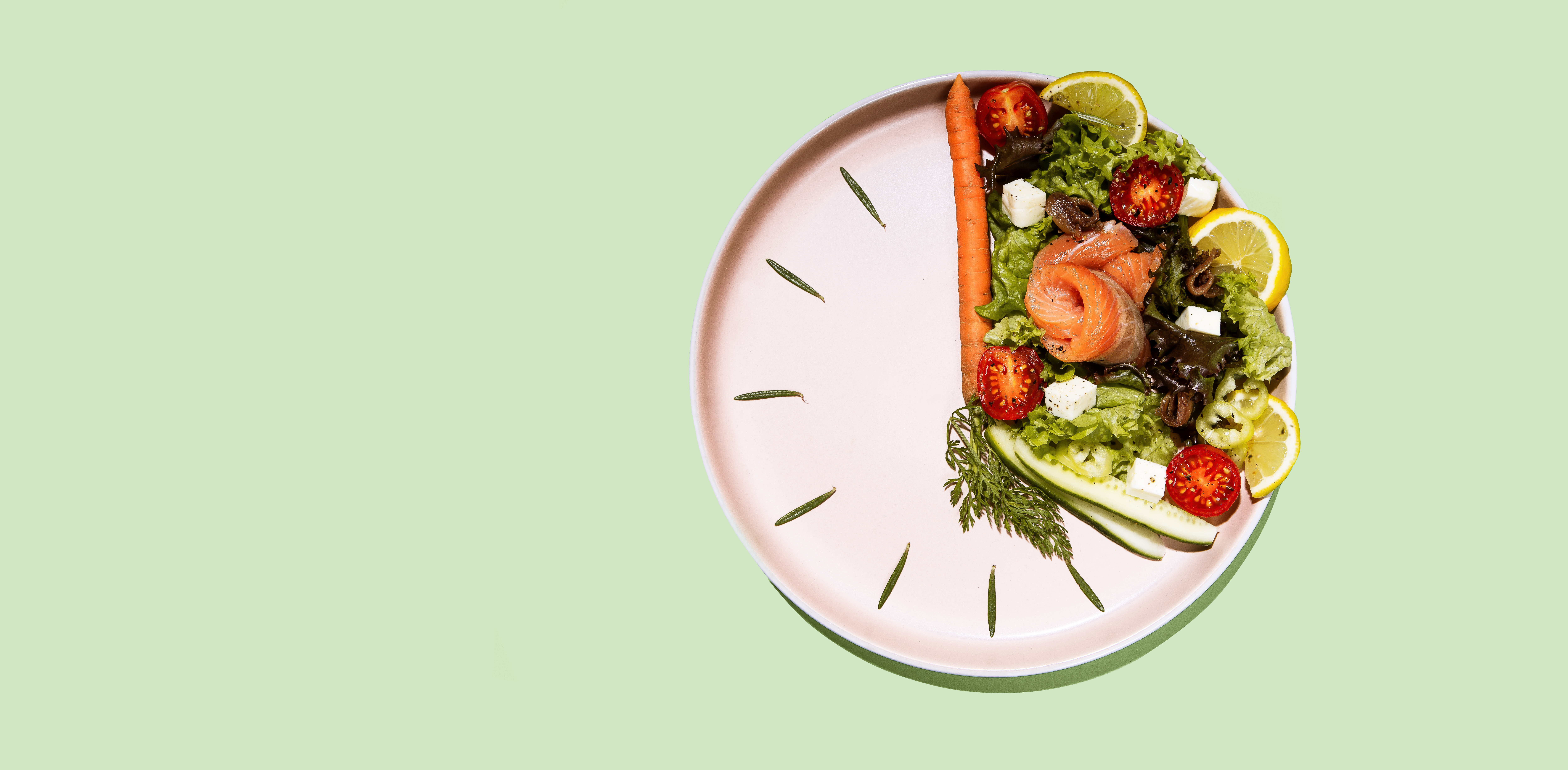Curious about seed cycling? Proponents of seed cycling believe that it can facilitate regulation of the menstrual cycle, improve PMS symptoms, optimize ovulation and fertility, and help treat PCOS. While research is limited, there may be some potential benefits of this health trend aimed at optimizing women’s hormonal health. Our Registered Dietitian Nutritionists break down the science to help you make an informed decision if seed cycling is right for you.
What is Seed Cycling?
Seed cycling is based on the principle that certain seeds, including pumpkin, flax, sesame, and sunflower seeds, contain specific compounds that can optimize hormonal balance. The seed cycling program involves consuming these seeds throughout the month, timed with the menstrual cycle phases, to potentially improve hormone regulation. For women that have entered perimenopause or are menopausal or postmenopausal, it is recommended to follow a 28-day seed cycling program (with 14 days in each phase).
Seed Cycling for Hormones
Women typically experience a menstrual cycle every 28 days on average, with normal cycles ranging between 24 to 38 days. The menstrual cycle consists of 2 phases: the follicular phase and the luteal phase. The follicular phase starts on the first day of menstruation until ovulation, and can vary in length between 10 to 21 days. The luteal phase occurs after ovulation, lasting until the next menstruation, which is typically around 14 days.
Hormones, which are present in varying concentrations at each phase of the cycle, largely impact the menstrual cycle. A hormone called “follicle stimulating hormone” (FSH) is released just before each menstrual cycle begins. FSH triggers the beginning of the follicular phase, in which ovarian follicles form. FSH also triggers an increase in the hormones estrogen, and luteinizing hormone (LH).
Once LH is present in its highest concentrations, ovulation begins. Following ovulation, estrogen levels decline, and the luteal phase begins. In the luteal phase, unused follicles (meaning unfertilized eggs) then stimulate the release of the hormone progesterone.
To support the optimization of these hormone shirts during menstruation, seed cycling calls for eating 1 tablespoon each of pumpkin and flaxseeds daily during the follicular phase, and 1 tablespoon each of sesame and sunflower seeds daily during the luteal phase. Seed cycling protocols may vary depending on the individual’s cycle, but it is generally planned around a 28-day cycle with 14 days in both the follicular and luteal phases.
Here is a closer at how these seeds may provide hormone support during each phase:
Follicular Phase: Flax and Pumpkin Seeds
Flaxseeds contain particularly high amounts of lignans, a group of polyphenol compounds found in plants which are a specific type of phytoestrogen. Phytoestrogens can act similarly to estrogen when consumed, meaning they may impart similar effects on the body. Further, lignans are specifically useful in regulating estrogen levels in both directions (up-regulating or down-regulating as needed) to optimize hormonal balance.
Therefore, proponents of seed cycling believe they may help regulate estrogen levels during the follicular phase, where estrogen levels are a key determinant in ovulation. Additionally, some studies have shown that flaxseed consumption may help to reduce breast pain during periods and improve symptoms of PCOS.
Despite the known association between lignans and estrogen regulation, more research is needed on the direct effects of flaxseed consumption on women’s hormone health, including its effects on menstruation, menopause, PCOS, fertility, and breast cancer.
Pumpkin seeds are used in seed cycling for their zinc and omega-3 content. Pumpkin seeds contain large amounts of zinc, which may improve dysmenorrhea, or painful menstrual cramps. Pumpkin seeds have been shown to boost progesterone levels, which can reduce symptoms of PMS, and increase fertility by increasing the progesterone needed for the second half of the cycle. It should be noted that these findings related to the potential progesterone-boosting effects of pumpkin seeds were observed in the context of breast cancer research and were not directly linked to fertility or hormone imbalances in patients free of disease.
Luteal Phase: Sesame and Sunflower Seeds
Proponents of seed cycling believe sesame and sunflower seeds may contain compounds that help balance progesterone levels during the luteal phase.
Similar to flaxseeds, sesame seeds contain lignans which can help maintain estrogen balance. Seed cyclers believe these lignans can help down-regulate estrogen in the luteal phase and up-regulate progesterone levels to promote fertility. As far as research goes, one study found that sesame seeds were correlated with improvements in sex hormone levels in postmenopausal women. These findings may not be applicable to women who are menstruating.
Sunflower seeds contain high amounts of Vitamin E, which may improve menstrual health by also promoting progesterone production. However, there is very little research on this topic. In one available study, vitamin E supplementation was correlated with improved luteal function. However, this study addressed vitamin E only, and not sunflower seeds specifically. Additionally, a recent study showed that consuming vitamin E may improve painful menstrual cramps. However, the study did not address sunflower seeds specifically and consumption was not necessarily timed with the luteal phase.
Seed Cycling and PCOS
Polycystic Ovarian Syndrome (PCOS) is a condition related to hormonal imbalance, and there has been increasing interest in seed cycling as a potential therapeutic diet plan to help treat it. A case study that was done with an individual subject showed some promising, positive associations between flaxseed consumption and optimizing hormones. The participant in this study consumed large doses (~4 tbsp/day) of flaxseed during a four-month period.
The most notable findings from the study were a significant decrease in testosterone, as well as androgen levels, which, in overabundance, can cause amenorrhea (absence of menstruation), and obesity. Despite limitations to the study, this suggests flax may be an effective intervention (in combination with other dietary changes) to reduce symptoms of PCOS and regulate hormone levels and menstruation.
A recent, controlled clinical study including 90 women with PCOS, found that the seed cycling protocol specifically, did improve hormonal outcomes (leutenizing hormone, progesterone, and follicle stimulating hormone) in women with PCOS, compared to the control group not on the protocol. The findings could also be attributed to other dietary modifications such as portion-controlled diets accompanying the seed cycling.
While these studies show potential advantages of seed cycling for PCOS, there is not enough research to support it as a therapeutic diet plan. If you have PCOS, we recommend consulting a healthcare professional to address all of your treatment and symptom management options, and working with a Registered Dietitian to discuss evidenced based dietary plans.
The Bottom Line on Seed Cycling
Some evidence suggests that there are elements of the seed cycling protocol that may enhance regulation of estrogen and progesterone during the different phases of the menstrual cycle, and improve some hormone related side effects, such as menstrual cramps. Adjacent findings of seed cycling have found that there may be some potential benefits in the treatment of patients with PCOS, post-menopausal hormone imbalance, and breast cancer.
All of these findings have limitations when it comes to proving the efficacy of seed cycling, as the role of seeds in the significant findings is difficult to parse out from other mediating factors (such as overall diet). Additionally, very few studies test the actual seed cycling protocol, and instead look at the role of seeds (and the nutrients they contain) on hormone health.
Tracking your menstrual cycle can be helpful in learning about your body, gaining insight into your fertility window, and identifying patterns of certain symptoms. If you are interested in coupling cycle tracking with seed cycling, there is likely no downside to it (and you’ll get a boost of healthy fats in your diet), but it should not be used in replacement for medical treatment of any hormone imbalance condition.
While there is a lack of robust scientific evidence to support seed cycling specifically as a mechanism on its own for regulating hormone levels, there is ample evidence to support that consuming a range of nuts and seeds is health-promoting. Nuts and seeds provide vitamins, minerals, healthy fats (including omega-3s), antioxidants, and fiber that support overall health, including hormone health. Eating for hormone health extends beyond just seeds – the goal is to aim for a balanced diet incorporating a range of fruits, vegetables, whole grains, legumes. and proteins, as well as healthy fats like nuts and seeds.
Have more questions about seed cycling and women’s hormone health? Work with a Culina Health registered dietitian nutritionist to get personalized virtual nutrition care that is covered by insurance. Schedule a free intro call to get started!






